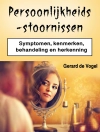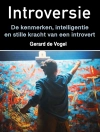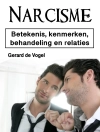Revisits Julia Kristeva’s magnum opus on the fiftieth anniversary of its original publication to open up new paths of interdisciplinary inquiry.
In her 1974 Revolution in Poetic Language, Julia Kristeva resisted the abstract use of language, with its aim of totalization and finality, in all its colonizing and alienating forms. A major thinker and critic, Kristeva reappropriated Hegel’s concepts of desire and negativity, in conjunction with the thought of Heidegger, Arendt, Freud, and Lacan, to revolt against modernity’s culture of nihilism and the West’s inability to deal with loss. This collection celebrates the fiftieth anniversary of Revolution in Poetic Language by revisiting Kristeva’s oeuvre and establishing exciting new directions in Kristeva studies. Engaging with queer and transgender studies, disability studies, decolonial studies, and more, renowned and rising scholars plot continuities in-and push the boundaries of-Kristeva’s thinking about loss, revolution, and revolt. The volume also includes two essays by Kristeva, translated into English for the first time here-‘The Impossibility of Loss’ (1988) and ‘Of What Use Are Poets in Times of Distress?’ (2016).
Mục lục
Editor’s Acknowledgments
Introduction: Revolutionary Practice and the Subject-in-Process
Emilia Angelova
Part One: Two New Texts by Kristeva
1. Editor’s Introduction to Julia Kristeva’s ‘The Impossibility of Loss’ (1988)
Emilia Angelova
2. The Impossibility of Loss
Julia Kristeva, translated by Elisabeth Paquette
3. Of What Use Are Poets in Times of Distress?
Julia Kristeva, translated by Elisabeth Paquette and Alice Jardine
Part Two Beyond Feminism: Engaging Kristeva for Decolonial, Trans, and Disability Studies
4. Julia Kristeva’s Maternal Ethics of Tenderness
Kelly Oliver
5. Kristeva in a Trans Poetic Frame
Sid Hansen
6. Stranger than Other Strangers: On the Crossroads between Subjectivity and Language in Kristeva and Anzaldúa
Fanny Söderbäck
7. Theories of Poetic Resistance: Julia Kristeva and Sylvia Wynter
Elisabeth Paquette
8. Proust among the Patients: Kristeva on Proust, Psychoanalysis, and Politics
Elaine P. Miller
Part Three The Evolving Meaning of Ontological Loss: From Revolution to Revolt
9. From Praxis to Chōra: The Filter of (In)Humanization in Julia Kristeva’s Early Work
Miglena Nikolchina
10. The Mental Image and the Spectacular Imaginary: Kristeva with Lacan and Sartre
Surti Singh
11. Rhythm and the Semiotic in Revolution in Poetic Language
John Montani
12. Excription and the Negativity of the Speaking Subject: Reading Kristeva with Heidegger
Emilia Angelova
13. Kristeva and Arendt on Language, Sanity, and the Sensus Communis
Anne O’Byrne
About the Contributors
Index
Giới thiệu về tác giả
Emilia Angelova is Associate Professor of Philosophy at Concordia University. She is the editor of The Necessity of Freedom in Hegel: Logic, Phenomenology and Aesthetics.












